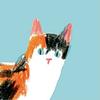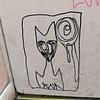Take a photo of a barcode or cover
challenging
dark
tense
fast-paced
Plot or Character Driven:
A mix
Strong character development:
No
Loveable characters:
Complicated
dark
funny
reflective
medium-paced
Plot or Character Driven:
Character
Strong character development:
No
Loveable characters:
Yes
Graphic: Antisemitism, War
Az alapötlet izgalmas, de nekem fájt a sok nézőpontváltás. Nem volt benne logika, mikor fordult az E/3. mesélés E/1-be, aztán egy másik szereplő E/1-ébe, aztán E/2-be. Pedig lehetett volna. A kézirat tartalmáról is ezek után szerettem volna hallani (remélem, Judit elolvasta az egészet). Zavart így a lezárás hiánya is… És miért minden lucidus?
dark
reflective
medium-paced
Plot or Character Driven:
Character
challenging
dark
funny
medium-paced
I read this book as part of my series of reading books by Nobel prize winning authors. I chose Liquidation because of the title's reference to the Nazi liquidation of Jewish towns and ghettos.
Inevitably, I feel that this may be one of the most post-modern books I've ever read. It begins by describing a play which, through the amazing foresight of the already-deceased central character, is a series of events faithfully recorded before they occur. Although the playwright was himself a fascinating survivor of Auschwitz (actually, he is perhaps the only baby born in Auschwitz to survive, and bears his tattooed ID number on his leg instead of his wrist as a result) the book is set in post-Communist Hungary, as those who are still living explore what happens to those whose story has ended.
In writing this, I realize how much I need to go back and read this book again. It was not a laborious read, but I wasn't transported by it at the time. I could tell it was implying something, but I couldn't quite reach at what. It ought to have hit me at the time that the deceased friend who haunts the book served more as a metaphor than as a character, but sometimes you can't see the forest for the trees when the pages are in front of you.
Inevitably, I feel that this may be one of the most post-modern books I've ever read. It begins by describing a play which, through the amazing foresight of the already-deceased central character, is a series of events faithfully recorded before they occur. Although the playwright was himself a fascinating survivor of Auschwitz (actually, he is perhaps the only baby born in Auschwitz to survive, and bears his tattooed ID number on his leg instead of his wrist as a result) the book is set in post-Communist Hungary, as those who are still living explore what happens to those whose story has ended.
In writing this, I realize how much I need to go back and read this book again. It was not a laborious read, but I wasn't transported by it at the time. I could tell it was implying something, but I couldn't quite reach at what. It ought to have hit me at the time that the deceased friend who haunts the book served more as a metaphor than as a character, but sometimes you can't see the forest for the trees when the pages are in front of you.
This is a book about a play about real life.
It is also a book about a book about a marriage that has ended.
This is a book about what it means to be a writer after Auschwitz.
This is a book that does not bother to make any sense.
This is a book that cannot remember which parts of the story it wishes to tell.
This is a book that cannot actually tell the story that it is attempting to tell.
This is a book that cannot be explained.
This is a book about obsession.
Hungry
It is also a book about a book about a marriage that has ended.
This is a book about what it means to be a writer after Auschwitz.
This is a book that does not bother to make any sense.
This is a book that cannot remember which parts of the story it wishes to tell.
This is a book that cannot actually tell the story that it is attempting to tell.
This is a book that cannot be explained.
This is a book about obsession.
Hungry
dark
reflective
medium-paced
Nine years ago, B. killed himself with a heroin overdose, leaving behind manuscripts, including a play that exactly reproduced the scene of his friends' learning that the Hungarian state-supported publisher for which they work is to be liquidated. That event actually occurred after B.'s suicide, which also figures in the play, and this novel's narrator, who calls himself what he is called in the play, Kingbitter. The characters of 2002 Nobel laureate Kertesz's brief novel represent a generation of middle-European intellectuals so alienated by history--Auschwitz and what it symbolizes, to be specific (B. was born in Auschwitz)--that, as Kingbitter observes more than once, for them the "Hamlet question" has become "Am I or am I not?" A bleak, almost crushingly sad novel. Unfortunately, the writing is so beautiful that I could not leave Kertesz's world until the end.
Een novelle over een toneelstuk dat over het echte leven gaat en waarin een ontbrekende roman centraal staat. En de vraag: Hoe gaan mensen om met de holocaust. En dan vooral: het leven erna. En nog specifieker in de periode dat alles “goed” zou zijn, eind jaren 90, regime gevallen, communisme ingeruild voor kapitalisme.... en nu?
We hebben een redacteur wiens carriere weinig voorstelt, zeker na de Hongaarse censuur. Hij weet niet of hij verder mag leven na de zelfmoord van zijn vriend B. Er is de schrijver B., geboren in Auschwitz. Hij kiest de dood en ziet niet in dat er enige zin is in het leven na Auschwitz. Florence (stad voor kunst) bijvoorbeeld heeft geen zin, de mensen zijn allang de betekenis van schoonheid en de essentie van een stad als Florence vergeten. Zijn ex-vrouw Judit leeft jaren leidzaam naast hem maar kiest uieindelijk wel voor schoonheid en het leven. Eerst met de redacteur en dan met haar nieuwe man Adam. En de tijdelijke minnares van B., Sarah, die ook leidzaam leeft naast haar man Kürtu, ze zien het ook als zinloos.
De driehoeks (vierhoeks?) verhoudingen tussen alle personages betekenen ook voor elk van hun iets anders. Liefde, leven, zinloosheid.
Uiteindelijk gaat het ook over het schrijven als uiting, waarvan B in elk geval vindt dat het kansloos is, dat het niets tot uitdrukking kan brengen van waarde en dat de enige manier iets te zeggen het leven zelf is.
We hebben een redacteur wiens carriere weinig voorstelt, zeker na de Hongaarse censuur. Hij weet niet of hij verder mag leven na de zelfmoord van zijn vriend B. Er is de schrijver B., geboren in Auschwitz. Hij kiest de dood en ziet niet in dat er enige zin is in het leven na Auschwitz. Florence (stad voor kunst) bijvoorbeeld heeft geen zin, de mensen zijn allang de betekenis van schoonheid en de essentie van een stad als Florence vergeten. Zijn ex-vrouw Judit leeft jaren leidzaam naast hem maar kiest uieindelijk wel voor schoonheid en het leven. Eerst met de redacteur en dan met haar nieuwe man Adam. En de tijdelijke minnares van B., Sarah, die ook leidzaam leeft naast haar man Kürtu, ze zien het ook als zinloos.
De driehoeks (vierhoeks?) verhoudingen tussen alle personages betekenen ook voor elk van hun iets anders. Liefde, leven, zinloosheid.
Uiteindelijk gaat het ook over het schrijven als uiting, waarvan B in elk geval vindt dat het kansloos is, dat het niets tot uitdrukking kan brengen van waarde en dat de enige manier iets te zeggen het leven zelf is.





